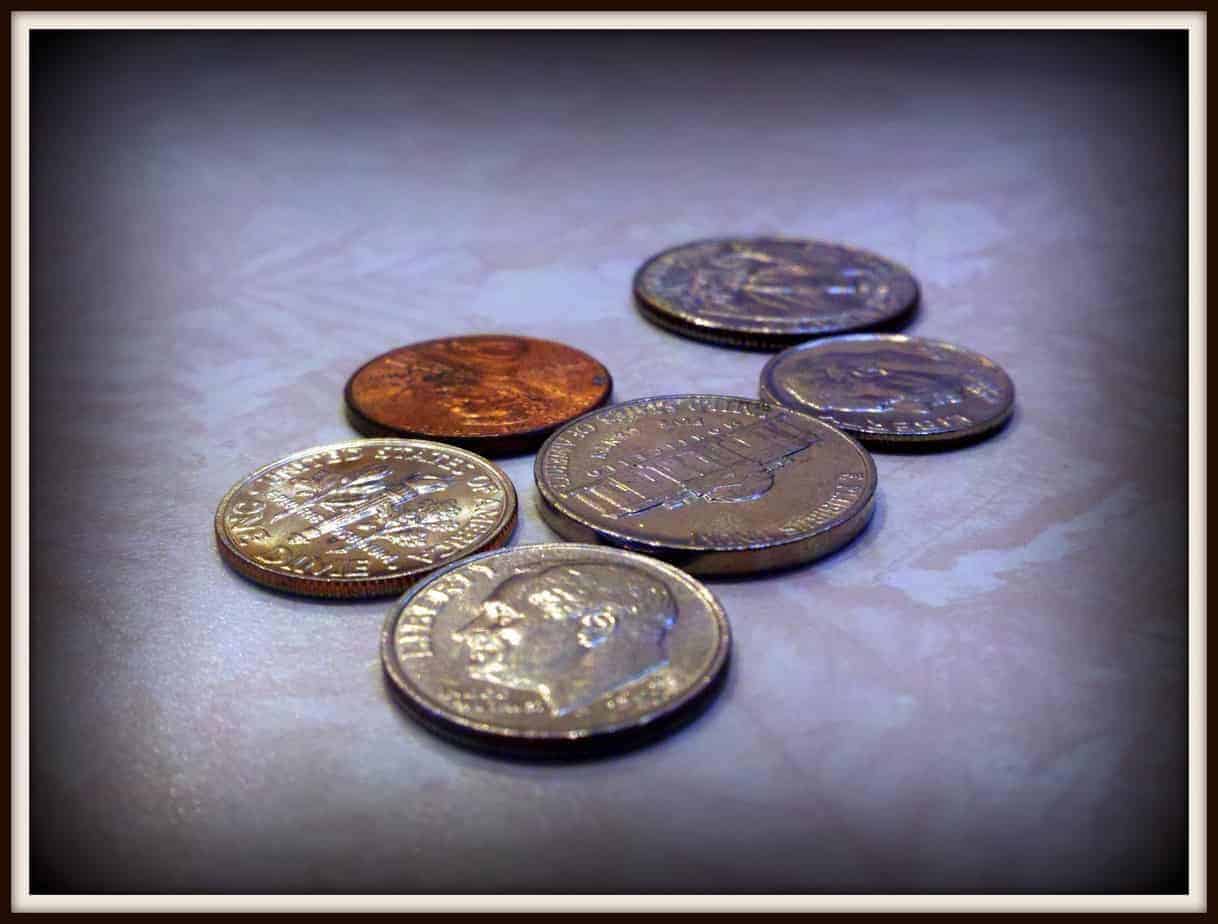
Economics = Religion
If we allow the term “religion” to stand for rituals and doctrines binding faithful believers into distinct groups, we can see important similarities between economic theory and religions such as Christianity. These two ancient social organizing principles- religion and economics- are not often compared. In the United States, an intersection of the two is emerging in a third ancient institution: politics.
Before politics enters this discussion, it must be understood that there is little difference in practice between religious systems of belief and economic systems. Schools of Economic Thought function more like religious institutions than academic. Economics is a religion, and that is not a terribly controversial idea, or a particularly new one. Both religion and economics train high priesthoods who master bodies of fairly obscure doctrine which go largely unquestioned by their loyal followers. These masses of trusting followers are mostly immune to the constant in-fighting between their beloved guides, settling instead for the over-simplified generic party platforms and creeds that comfort them in their quest for certainty in uncertain times.
Students who peer behind the scenes of the bureaucratic battles for control of the direction of these well-worn social institutions do so at the risk of losing their ability to easily place their trust in their economic and religious thought-leaders. Comfortable certainty may be replaced by the never ending quest to form one’s own informed conclusions about what is best for themselves, and for their world.
Questioning the Status Quo = Progress
Both religious and economic doctrines should be questioned and reevaluated by their faithful believers; sometimes, the questions a Martin Luther or a Karl Marx raise echo down through history. Occasionally such challenges yield reformation movements, which split off new groups from the orthodox teachings, often causing reform or reaction in the unyielding Establishment. The Council of Trent codified the Catholic Church’s utter rejection of Luther and all Protestant heresy. The Chicago School became the headquarters for the denomination of believers in Laissez-faire economics, in conscious reaction against the Keynesian experimentation of the New Deal era.
These heretical new twists on old beliefs themselves evolve through predictable stages of revolution, institution-building, and eventually form orthodoxies of their own. Even churches still in relative infancy (from the long view in historical perspective) like the Mormons and the Seventh-day Adventists have already spawned Reformed splinter denominations.
Adam Smith’s model of capitalism, nearly as young as those two American-born churches, had detractors so determined to improve upon capitalist dogma that blood was shed, and their manufactured revolutions gave violent birth (Labor pains vs Management gains) to short-lived national experiments. Other nations around the world found middle ground between strict Social Darwinism and dogmatic socialism.
The United States is a frontier-obsessed nation which values innovation and exploration, and has thus become a vibrant ecosystem for both religious and economic experimentation. But its religious and economic orthodoxies hang on to the reigns of power and tend to exert the greater influence over the direction the nation takes. This is where politics enters the discussion.

The Politics Side of the Coin
The coin of the realm of politics is religion. The religion morphs between Christianity and economics, depending on which crisis their 24/7 media chorus is presently manufacturing for them. If the public is currently scared of foreigners, politicians spend their religion coins fomenting nativist sentiment, usually by invoking mantras and creeds and mottoes perpetuating the mythology of The United Christian States of America. Of smoking guns, and mushroom clouds, there shall be no end of anti-Christian phantoms to inspire the publics to vote their fears and not their best interests.
If there is any possibility of blaming an economic downturn on their political opponents, the coins of the economic priesthood start dropping into the media vending machine. “Which obscure theory do you need us to sell as prophecy to the masses today? For bubbles, press A1. For trickle-down, B2. For fascist socialist meltdown, C3. For tax terrors, press W2. For Ann Coulter, 666. Deposit 10 PhDs, wait one full media cycle, then repeat the message on C-Span as if it had come to you straight from your constituent voters back home.” After a few polls can be taken reflecting the fears that the political machine needed to act on, voters will vote their desperation instead of their best interests.
The coin of religion purchases the same result whichever denomination is spent: a faith in the prophecies of doom turning votes, donations, and airtime into policy. American Christian religions and the PhD priesthood of economists may seem disconnected on the surface, and the two realms are almost certainly ignorant of their similar utility to the political class. However, the dependence of both on the trust and faith of their followers is more alike than different. Religionism is a big enough umbrella term for both forms of belief in faith-based assertions. Media manufactures the consent of the faithful, who love praising God according to their respective spiritual guides, and who love praising the interpretation of their Constitution and Founders according to their respective economic guides. In order to obtain and protect the only kind of power they have– voters’ consent– modern media-created politicians practice their own brand of voodoo, secretively manipulating forces that most voters refuse to take an interest in, including science falsely so called.
The Business End of the Coin
The coin of the realm of business is scientism. That’s a new term, but less vague than “Science.” As the coin of business, scien
tism morphs into many forms, but they all share a common effect on the practitioners of scientific research and on the publics who pay for it. The paying part refers to money granted toward research outcomes and to the intended and unintended consequences of applying the research. A bigger profit margin no matter the consequences is the common effect of the scientism coins spent by business (especially Big Business; but all businesses tend to aspire to ubiquity, and a few make it).
The moral code in the realm of the free market (i.e., the traditional American business environment as perceived by the supporters of the economic priesthood) is: There is no moral code! Anything goes, but don’t think beyond your own self-interest, and don’t talk about the code! Let the experts do that (in specially crafted PhD-encrypted code language) within the safety of pro-business echo chambers, such as Rupert Murdoch’s media chorus. Profitability depends upon freedom from intervention from those who would attempt to hold business accountable to any code conflicting with their own.
Therefore, when it can protect or grow profitability, business purchases scientific research. Scientists on corporate or pro-business government payrolls create legal protections against adverse effects and the resulting risks to profits that lawsuits about those effects can provide.
It’s helpful to remember that most business practices and products now deemed illegal and/or injurious began as decisions taken by these uniquely amoral fellow citizens of ours, who were only amoral when carrying out their legally binding roles as shareholders in their business, who were simply operating by their code. It has been argued that the modern institution of The Corporation can be diagnosed as a psychopath, given the tendency of Big Business to avoid accepting responsibility for negative externalities. The current protections against those dangerous business decisions came into existence only after the industry lost a legal battle, generically known as “The (health and welfare of the vulnerable) People versus (The Bloodsucking) Business.”
It’s also helpful to recall that battles teach adversaries how to defeat the enemy if they ever get the chance to fight again; armies of shrewd legal warriors adapt their strategies in order to prevent future losses to business profits. It’s helpful to remember that the practitioners of legal battles (lawyers) have made their profession into the most highly influential and profitable industry, bar none. The lawyer class outranks even the economic priesthood, since it is from the legal professions that most legislators come, and they have the final say in every court of final appeal. Government at the highest level consists of the decisions of lawyer-legislators being advised by economists and other lawyers, especially those lobbying on behalf of big industrial interest groups.
The People = Hope for Brighter Future
If scientism and religionism are two sides of the same coin, then who is supplying this currency, which seems only to be used to manipulate voters and keep them ignorant of their best interests? Since The People, the voters– the willfully ignorant followers— are the ultimate source of power for these groups, the responsibility for making this currency of manipulation a useful tool in the hands of abusive authorities lies with them.
Without The People, the consumers and producers of an economy’s products and services, Business ceases to exist; if only the consuming, laboring public knew how much power they had at their fingertips, as they reach for that delicious new item on the literal or virtual shelf. They’ve ingested the message of the ad campaign; they’ve allowed themselves to believe this want they’re experiencing is a need; but when they remember that they don’t have nearly as many true needs as they have desires, they know that they have the power that advertisers and PR firms desperately try to keep consumers ignorant about: THE POWER TO CHOOSE. If they remember that businesses and their market tools closely track each economic choice (Economics is the study of how spenders choose to spend the scarce resources that producers choose to supply), they will know the messages they feedback to those who create the products and services. Those messages amount to one of two mandates: Give Us More, or Stop Making This.
Without The People, the governed people, the government ceases to exist; if only the voting public knew how much power they had at their disposal, which power extends beyond their votes and into their freedom to speak their minds to power, whether alone, or in lawful assemblies. The only time history has ruled in favor of the best interests of The People is when they said to each other “I’m mad as hell, and I’m not gonna take it anymore.”
Think About It
Given their spotty track record, wouldn’t it be wise stop accepting everything that “experts” say and learn how to check the facts for ourselves?
Especially since so many outside your situation have so much to gain from you NOT doing just that, and instead take their word for it?
What can average people do to exert as much or more pressure on their elected legislators as lobbyists from industrial and corporate and financial power brokers?
What do you need, actually need, as compared to what you honestly just want or desire?
What legacy do you want to leave behind in the minds and characters of your children or other loved ones after you leave this world behind?